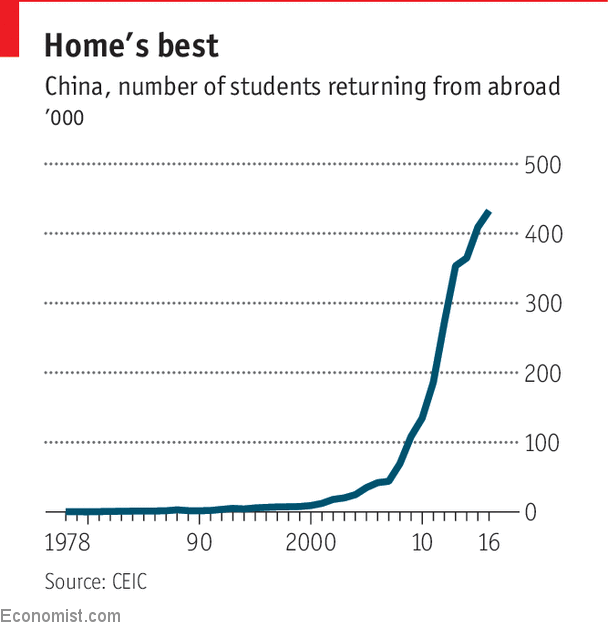The Anglo world is essentially milking the human investment and talent from non-Anglo Europe including former soviet nations and parts of Asia where they invest heavily in education and training. This doesn't take away from the fact that Anglo sphere has a strong foundation.That is one of the problem the Anglo Saxon countries of US, Canada, England, Australia does not want to invest in training people in the name of effciency. They think as unnecessary expenses . Unlike Germany and Japan where they consider people as asset and not variable cost
They also does not want to invest in R&D that much thinking that doing the same thing over and over shoudl do the job . It might be so 20 or 30 years ago.But now the competition get stiff unless you can provide cutting edge technology no body want to pay you premium price
Their solution is instead of investing in R& D they just go outsourcing the manufacturing to China or any other cheaper manufaturing But by doing that they create their own competitor!
See the chart in the article above! How the R&D has been declining for decades
Just look at the top companies and research institutions in the US, a large part of their personnel comes from other nations. They were usually educated and raised in another nation, and some go to the US to complete their higher education. The cost of cultivating talent is externalised on other nations and the talent comes into the Anglo sphere talent pool as a finished product or near finished product. This in the long run is a massive wealth transfer. Of course there are long term downsides to this strategy but in the short run it is a very efficient system financially speaking.

